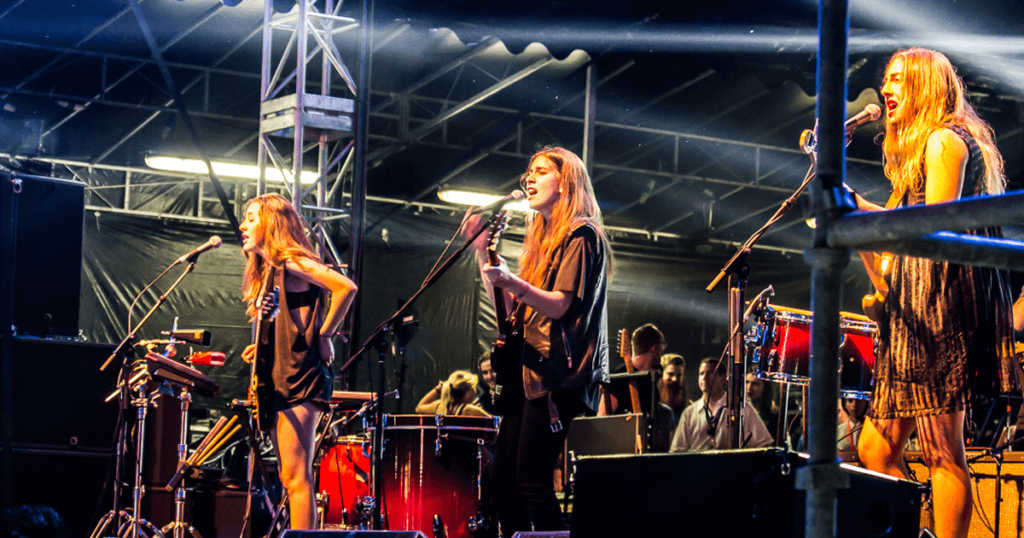The Times They Are a-Changin’
In the music industry, pushing for gender equality is key

When Richard James Burgess was growing up in 1950s England, both of his parents worked in factories, though the job was easier on his father than on his mother. “She was furious that some guy was being paid double what she was getting for the same work,” he says. “And sexual harassment, of course, was rife.” Burgess grew up to become a successful musician, producer, and author, as well as the CEO of the American Association of Independent Music. Although laws have evolved and working conditions have improved since his childhood, both here and in England, Burgess looks at the music industry and says, “We still have a long, long way to go.”
To that end, his organization recently announced its pledge to achieve, by 2022, gender equality among the panelists at its annual conference, Indie Week—part of an international movement striving for a 50-50 gender balance in music festival lineups worldwide. Eighty-five organizations have signed the pledge so far, including 38 from the United Kingdom, nine from Canada, and six from Norway. The announcement of the PRS Foundation’s Keychange initiative was met with tremendous enthusiasm online. Still, we’re unlikely to see Coachella, say, boasting about a balanced lineup anytime soon. In 2015, the women’s media site Refinery29 bestowed the nickname “Brochella” upon the annual festival in California’s Colorado Desert because of its male-heavy roster. The most recent lineup did include a smashing performance by Beyoncé but was still largely skewed toward male-lead acts by a little more than two to one.
“The idea that having more women in your lineup isn’t commercially viable is something I just don’t understand,” says Jess Partridge, the project manager of Keychange. The target date of 2022, Partridge says, was set precisely because biases are so deeply ingrained in music culture.
So when does bias in the music business start to set in? According to Brice Rosenbloom, producer of New York City’s Winter Jazzfest, “If you look at a lot of high school bands, there is full gender equality. We think it changes when you step to the college level.” His goal is to provide a platform so that young women can see female role models onstage, playing alongside men and leading their own bands. “Look, this should have happened long ago,” he says. “It’s 2018. We’re late in the game.”

